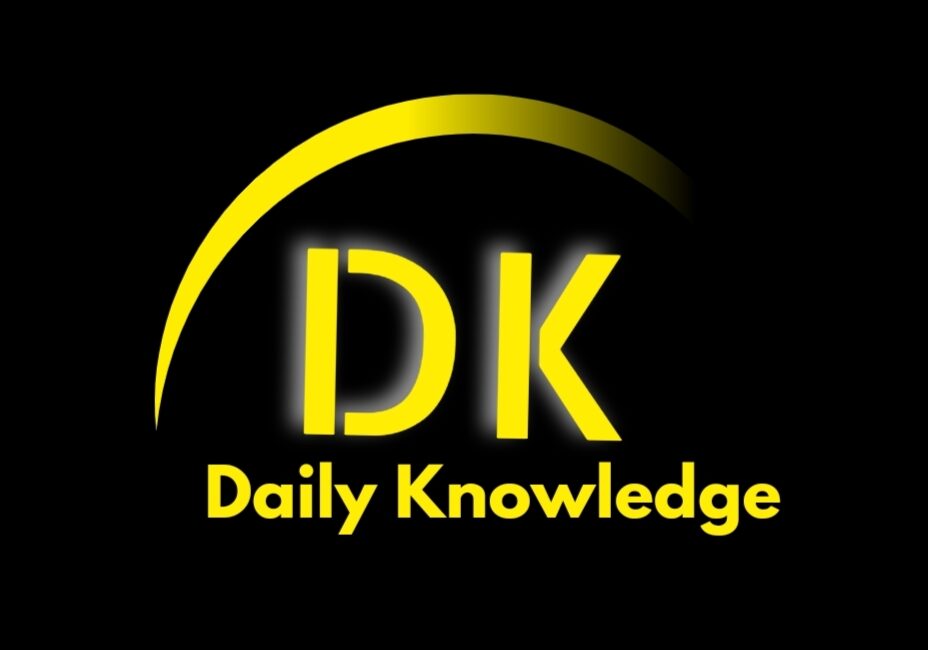Chat GPT’s ability to analyze vast amounts of data, generate real-time market insights, and automate trading decisions has the potential to enhance returns and improve risk management.

Introduction
In today’s rapidly evolving world, the integration of artificial intelligence (AI) into various industries has revolutionized the way we work, communicate, and even invest. One such area where AI has made significant strides is in the field of stock trading. With the advent of advanced language models like Chat GPT, investors now have access to a powerful tool that can help them make informed decisions and achieve better returns in the stock market. This article explores the rise of smart stock trading and how harnessing AI, specifically Chat GPT, can lead to improved investment outcomes.
One of the remarkable advancements in this field is the emergence of Chat GPT, a language model developed by OpenAI. Chat GPT combines natural language processing and machine learning to provide valuable insights and assistance to investors, enabling them to make more informed decisions and potentially achieve better returns on their investments. In this article, we will explore how Chat GPT is transforming the landscape of stock trading and how investors can harness its power to their advantage.
Chat GPT: A Game-Changer in Stock Trading
What is Chat GPT?
Chat GPT is an AI language model developed by OpenAI. It is built upon the GPT-3.5 architecture and is designed to generate human-like text based on the input provided to it. Unlike traditional trading algorithms, Chat GPT has the ability to process and understand natural language, enabling investors to interact with the model in a conversational manner.
Chat GPT is an advanced language model that has been trained on a vast corpus of text data, including financial reports, news articles, and historical market data. It can understand and generate human-like text, making it an ideal tool for stock market analysis and decision-making. Chat GPT utilizes a combination of deep learning and natural language processing techniques to interpret and respond to user queries in real time.
How does Chat GPT work in stock trading?
Chat GPT can be utilized in various ways to enhance stock trading strategies. Investors can feed the model with real-time market data, historical trends, and relevant news articles to obtain valuable insights and predictions. By understanding the language and context, Chat GPT can provide detailed analysis, forecast potential market movements, and suggest suitable investment opportunities.
The Role of AI in Stock Trading
AI has become a game-changer in the stock trading industry, empowering investors with sophisticated tools and capabilities. With the ability to process vast amounts of data, AI algorithms can identify patterns, trends, and correlations that are often invisible to human traders. This enables AI-powered systems to make data-driven predictions and generate valuable insights, helping investors make more informed decisions.
AI (Artificial Intelligence) plays a significant role in stock trading by revolutionizing the way financial markets operate. It has transformed traditional approaches to trading by leveraging sophisticated algorithms and advanced data analysis techniques. Here are some key roles of AI in stock trading:
- Data Analysis:
AI algorithms excel at analyzing vast amounts of financial data, including historical stock prices, market trends, news articles, social media sentiment, and more. By processing this data, AI can identify patterns, correlations, and anomalies that may impact stock prices.
- Decision Making:
AI can make data-driven trading decisions based on its analysis of market data. It can quickly assess multiple variables, indicators, and signals to generate trading strategies. AI systems can execute trades autonomously or provide recommendations to human traders.
- Algorithmic Trading:
AI has significantly contributed to the rise of algorithmic trading, where computer programs execute trades based on predefined rules. AI algorithms can execute trades at high speeds, taking advantage of even the smallest market inefficiencies. This can lead to improved trade execution and increased profitability.
AI models can assess various risk factors, such as market volatility, liquidity, and economic indicators, to determine optimal risk exposure levels.
- Quantitative Analysis:
AI models are extensively used in quantitative analysis, which involves developing mathematical models and statistical techniques to assess stock performance and predict market movements. AI algorithms can analyze complex data sets and identify quantitative patterns that human traders may miss.
- Portfolio Optimization:
AI algorithms can help optimize investment portfolios by considering various factors such as risk tolerance, return objectives, and market conditions. These algorithms can identify optimal asset allocations and rebalance portfolios to achieve desired investment outcomes.
- Market Prediction:
AI can be utilized to forecast stock prices and market trends. By analyzing historical data, news sentiment, and other relevant information, AI models can make predictions about future market movements. These predictions can assist traders in making informed decisions.
- Fraud Detection:
AI can be employed to detect fraudulent activities in stock trading, such as insider trading or market manipulation. By analyzing large volumes of transaction data, AI algorithms can identify suspicious patterns or anomalies that may indicate fraudulent behavior.
It’s important to note that while AI can enhance decision-making processes in stock trading, it is not infallible. Market conditions can be unpredictable, and there is always a level of risk involved in trading. Human oversight and expertise remain crucial in interpreting AI-generated insights and making informed trading decisions.
Chat GPT for Stock Market Analysis
Chat GPT can provide investors with valuable insights into the stock market. By analyzing historical data, current market conditions, and relevant news, it can generate predictions and recommendations regarding specific stocks or market trends. Investors can leverage Chat GPT’s analysis to identify potential investment opportunities, assess market risks, and optimize their trading strategies.
Types of Stock Market Analysis
There are three essential forms of inventory market evaluation: elementary evaluation, technical evaluation, and sentiment evaluation. Each approach offers a unique perspective and can be used individually or in combination to make informed investment decisions.
Fundamental Analysis
Investors using this method scrutinize factors such as earnings, revenue, assets, liabilities, and market position. By analyzing these fundamentals, investors can determine the intrinsic value of a stock and identify potential growth opportunities.
Technical Analysis
Technical analysis focuses on analyzing past market data, primarily through charts and patterns. By studying historical price movements and volume, investors using technical analysis aim to predict future price trends. This method involves the use of indicators, such as moving averages, support and resistance levels, and trend lines, to identify potential entry and exit points.
Sentiment Analysis
Sentiment analysis involves assessing market sentiment, investor behavior, and news sentiment surrounding a particular stock or the overall market. By analyzing news articles, social media posts, and market sentiment indicators, investors can gain insights into market psychology and identify potential market trends.
Key Factors in Stock Market Analysis
To conduct effective stock market analysis, it is essential to consider several key factors. Let’s explore these factors in detail:
Company Financials and Performance
Analyzing a company’s financial statements, such as income statements, balance sheets, and cash flow statements, provides valuable insights into its financial health. By examining revenue growth, profit margins, debt levels, and return on investment, investors can gauge a company’s overall performance and stability.
Industry and Market Trends
Keeping an eye on industry and market trends is crucial for successful stock market analysis. Understanding macroeconomic factors, market cycles, and industry dynamics allows investors to identify emerging sectors and anticipate market shifts. By staying informed, investors can capitalize on opportunities before they become mainstream.
Competitive Advantage and Moat
Evaluating a company’s competitive advantage and moat is vital for long-term investment success. A strong competitive advantage, such as intellectual property, unique products or services, or a robust brand, can contribute to a company’s sustainable growth and profitability. By assessing a company’s moat, investors can determine its ability to withstand competition and generate consistent returns.
Management Team and Corporate Governance
The management team plays a significant role in a company’s success. Assessing the qualifications, track record, and vision of the management team is crucial for effective stock market analysis. Additionally, evaluating a company’s corporate governance policies, including transparency and accountability, provides insights into its overall integrity and ethical standards.
Strategies for Successful Stock Market Analysis
To enhance your stock market analysis skills and make informed investment decisions, consider implementing the following strategies:
Conduct Thorough Research
Investing time and effort into conducting thorough research is key to successful stock market analysis. Utilize reputable financial news sources, company reports, and industry publications to gather relevant information. Stay updated with the latest news, economic indicators, and regulatory changes that may impact the market.
Diversify Your Portfolio
Diversifying your investment portfolio across different asset classes, sectors, and regions is crucial for managing risk. By spreading your investments, you can mitigate the impact of individual stock volatility and increase the potential for consistent returns.
Stay Disciplined and Emotionally Balanced
Emotional decision-making can lead to poor investment choices. It’s essential to stay disciplined, follow your investment strategy, and avoid making impulsive decisions based on short-term market fluctuations. Adopting a long-term perspective and maintaining emotional balance will contribute to more successful stock market analysis.
Utilize Technology and Tools
Leverage the power of technology and various analytical tools to aid your stock market analysis. There are numerous platforms and software available that offer advanced charting, screening, and data analysis capabilities. These tools can assist in identifying investment opportunities and streamlining your research process.
Leveraging Chat GPT for Better Returns
Identifying Trends and Patterns
One of the key advantages of using Chat GPT in stock trading is its ability to identify trends and patterns that may not be apparent to human traders. By analyzing vast amounts of data, the model can spot correlations, anomalies, and emerging market trends that can be leveraged for profitable investments. This gives traders a competitive edge and allows them to make data-driven decisions.
Real-Time Market Analysis
Chat GPT can also assist in real-time market analysis. By continuously processing incoming data, the model can monitor market conditions, news releases, and social media sentiment to provide up-to-date insights. This allows investors to adapt their strategies quickly and take advantage of market opportunities as they arise.
Portfolio Optimization and Risk Management
Another area where Chat GPT proves valuable is risk assessment and portfolio management. The model can analyze the composition of an investment portfolio, identify potential risks, and suggest diversification strategies to optimize returns while minimizing exposure. This helps investors achieve a balanced and well-structured portfolio that aligns with their risk appetite and investment goals.
Chat GPT can assist investors in optimizing their investment portfolios and managing risk effectively. By analyzing a wide range of factors, including risk tolerance, investment goals, and market conditions, Chat GPT can recommend an optimal asset allocation strategy. Additionally, it can provide insights into portfolio diversification, helping investors reduce risk and maximize returns.
Algorithmic Trading with Chat GPT
Chat GPT can be integrated into algorithmic trading systems to automate trading decisions. By leveraging its natural language processing capabilities and market analysis, Chat GPT can identify trading signals, execute trades, and manage positions in real-time, thereby eliminating human emotions and biases from the trading process.
Algorithmic trading refers to the practice of using computer programs to execute trades based on predefined rules and algorithms. While ChatGPT, as a language model, can provide information and insights about algorithmic trading, it does not have the capability to directly execute trades or interact with trading platforms.
However, ChatGPT can assist in various aspects of algorithmic trading by providing valuable information, answering queries, and offering insights into trading strategies. Here are some ways in which ChatGPT can be useful in algorithmic trading:
- Strategy Development:
ChatGPT can help traders in brainstorming and developing trading strategies. By discussing trading ideas, risk management techniques, and market analysis with ChatGPT, traders can gain new perspectives and refine their algorithmic trading strategies.
- Data Analysis:
ChatGPT can assist in analyzing financial data by providing insights and suggesting data sources. Traders can discuss historical price patterns, technical indicators, and market trends with ChatGPT to gain a better understanding of the data and identify potential trading opportunities.
- Backtesting:
ChatGPT can help traders in formulating and conducting backtests of their trading strategies. Traders can discuss their strategy parameters and historical data with ChatGPT to evaluate the performance of their algorithms and make necessary adjustments.
- Risk Management:
ChatGPT can provide insights and guidance on risk management techniques in algorithmic trading. Traders can discuss position sizing, stop-loss levels, and other risk management aspects with ChatGPT to better understand and mitigate potential risks.
- Market Monitoring:
ChatGPT can assist in monitoring market conditions and providing real-time updates. Traders can inquire about market news, economic indicators, and other relevant information to stay informed and make timely trading decisions.
- Trading Psychology:
ChatGPT can discuss trading psychology and help traders in managing emotions and maintaining discipline in algorithmic trading. Traders can seek advice on dealing with stress, sticking to their strategies, and avoiding impulsive decisions.
It’s important to note that while ChatGPT can offer valuable insights and information, it should not be considered as a substitute for professional financial advice. Traders should conduct their own research, consult with experts, and carefully evaluate the risks before implementing algorithmic trading strategies.
Challenges and Limitations of Chat GPT in Stock Trading
While Chat GPT offers tremendous potential in stock trading, it is important to be aware of its limitations. One challenge is the reliance on historical data, which may not always reflect future market conditions accurately. Additionally, Chat GPT may not fully comprehend the context or nuances of certain market events, leading to potential inaccuracies in its predictions. It is crucial for investors to exercise caution and use Chat GPT’s insights as a complement to their own analysis and judgment.
Ethical Considerations in AI-Driven Stock Trading
As AI technology continues to advance in stock trading, ethical considerations come to the forefront. Transparency, fairness, and accountability are essential when utilizing AI-driven systems in financial markets. It is crucial to ensure that algorithms are not biased and that the use of AI does not compromise market integrity. Regulators and market participants must work together to establish guidelines and frameworks to address these ethical concerns effectively.
Frequently Asked Questions (FAQs)
Q1: How does algorithmic trading with Chat GPT work?
Ans: Algorithmic trading with Chat GPT involves integrating the language model into automated trading systems. Chat GPT analyzes market conditions, identifies trading signals, and executes trades based on predefined rules and parameters.
Q2: What are the limitations of Chat GPT in stock trading?
Ans: Chat GPT’s limitations include reliance on historical data, potential inaccuracies in predictions, and the need for human judgment in interpreting its insights.
Q3: Can Chat GPT guarantee profitable investment decisions?
Ans: While Chat GPT provides valuable insights, it cannot guarantee profitable investment decisions. Investors should consider Chat GPT’s recommendations as part of their overall analysis and exercise their own judgment.
Q4: Are there any risks associated with using AI in stock trading?
Ans: Like any technology, there are risks associated with using AI in stock trading. One of the main risks is overreliance on AI models without considering other important factors such as market fundamentals and qualitative analysis. It’s crucial to strike a balance between leveraging AI’s capabilities and human judgment to achieve optimal investment outcomes.
Q5: What is the future of AI in stock trading?
Ans: The future of AI in stock trading is promising. As technology continues to advance, AI models like Chat GPT will become more sophisticated, enabling even more accurate predictions and analysis. Additionally, regulatory bodies and financial institutions are embracing AI and exploring its potential in risk management, fraud detection, and customer support. The integration of AI in stock trading is set to reshape the industry and empower investors with valuable tools for achieving better returns.
Q6: Are there ethical considerations in AI-driven stock trading?
Ans: Yes, ethical considerations arise in AI-driven stock trading. Ensuring transparency, fairness, and market integrity are crucial, and regulatory frameworks need to address these concerns effectively.
Conclusion
The rise of Chat GPT and AI-powered technologies has transformed the landscape of stock trading, providing investors with new opportunities and insights. Chat GPT’s ability to analyze vast amounts of data, generate real-time market insights, and automate trading decisions has the potential to enhance returns and improve risk management. However, it is essential to recognize the limitations and ethical considerations associated with AI-driven stock trading. By harnessing the power of Chat GPT and combining it with human expertise, investors can navigate the dynamic stock market landscape more effectively.
By leveraging the model’s ability to process and analyze vast amounts of data, identify trends, and provide valuable insights, investors can make informed decisions and optimize their investment strategies. However, it is important to remember that AI is just one tool in the decision-making process, and human judgment and expertise should always be considered. As AI technology continues to evolve, the future of stock trading holds exciting prospects, making it an intriguing space for both seasoned and novice investors.
-

Top 7 Reasons Russian Girls Move to Dubai in 2026 – Russian Expats, Lifestyle & Career Guide
-

7 Secrets of Soapy Massage: Step-by-Step, Benefits & Myths
-

K-pop girls vs Korean girls: 5 Truths of Korean Girls Looking Like K-pop Idols
-

Top 10 Massage Clothing & Comfort: What to Wear, Draping, Oils & More for the Best Spa Experience
